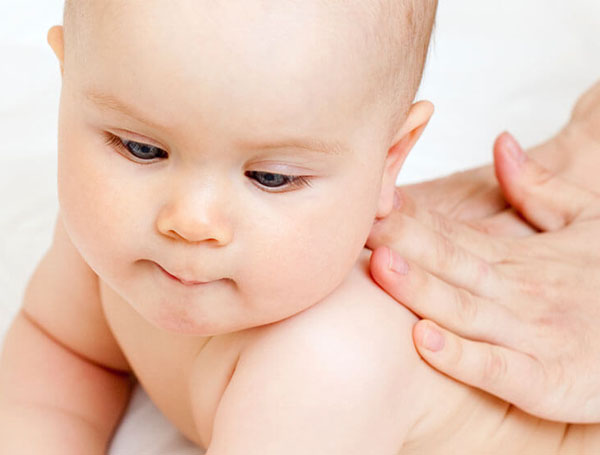
Does your baby seem too fussy for no obvious reason? Then it could be gas pain. Your usually happy infant can easily become unhappy. Little babies are quiet gassy creatures who don’t feel any embarrassment while passing it. As a matter of fact, babies pass gas 13 to 21 times a day. Gas is pretty common in babies particularly in the first three months of their life when their intestines are in a process of developing. Babies with gas usually stretch out their legs and arch their backs. There are many things you can do to drive that gas out of the baby’s body. Let’s discuss some of those simple tactics that can make your baby’s life easier.
Natural ways to treat gas
Till you get to know why exactly your baby seems to have, you are going to be troubled and worried as your baby is going to have this problem again and again. Here are some of the natural ways you can help your baby find relief from gas:
1. Keep an eye on your food
You can always discuss with the doctor about the foods that might cause extra gas in your baby. In case you are giving your baby fruit juices on a regular basis, try cutting it off from your baby’s diet for some time. Fruit juice contains sorbitols (sugar alcohols) that babies find hard to absorb. The doctor will help you maintain enough intake of nutrients for your baby.
Moreover, give your babies cereals that are especially made for babies because some cereals are very high in fiber making it difficult for your baby’s immature digestive system. You should always introduce high fiber foods slowly in order to give your baby’s bowel enough time to adjust. Furthermore, if your baby happens to be less than 6 months old, simply stop giving him solid food or simply give ‘low risk’ foods at the moment.
If you are a nursing mother, it can easily be a case of what you are eating because whatever you eat finds its way into breast milk. Some of the foods that you should stop taking as a mother are caffeinated beverages and dairy products. Think of changing brand if you give your baby formula milk.
2. Abdominal massage
A tummy massage is something babies mostly enjoy and love. It can be immensely helpful in relieving discomfort caused by abdominal gas. All you have to do is put some oil on your hands and gently massage the baby’s abdomen with a light hand in clockwise motion. Once you are done with that, life your baby’s feet by holding it from the ankle and move it in bicycle motion. Do both these movements one after the other. Make sure you don’t massage your baby tummy if he has just been fed or has hiccups.
3. Burp your Baby
Take some time out to burp your baby after and even during feeding. It aids in preventing air from being trapped inside the baby. Babies usually get tire while feeding and take a few seconds break before they continue feeding. That break can serve as the right time to burp your baby and release trapped air if any.
4. warm bath or a warm compress
Give your baby a bath using warm water. The warmth not only relaxes the baby but also aids in expanding the gas in the bowel and eventually releases it.
Another way of doing this is using a warm compress on the baby’s tummy. Simply take a towel or cloth diaper and warm it up in a microwave. Make sure it is not too hot. Spread it out over your knew and keep you baby on it on his stomach.
5. Water
All babies sometimes want is comfort and that could be in the form of feeding. They might not seek to feed necessarily because of hunger. Giving some water to you baby can satisfy his upset gassy stomach.
Reducing the amount of air your baby swallows
One of the major and most common reasons your baby has gas is swallowing air. There are ways you can reduce the amount of air your baby swallows. Here are some of the ways:
1. When breastfeeding
At many times, babies seem to swallow a lot of air when they are poorly latched. You should make sure your baby latches on properly. In case you have are finding this challenging, take the help of a lactation consultant.
Secondly, if your breasts tend to have a good supply of milk and a strong outpour, your baby might find it difficult to drink it. He might drink too fast or take huge gulps and end up swallowing air. You can pump out about an ounce of milk before you feed your baby. You can refrigerate this pumped breast milk for use later on.
Finally, just offer one breast at each feeding when you have got a plentiful supply of milk. Set alternate breasts for each feed.
2. When bottle feeding
When you are bottle feeding your baby, you need to make sure that the hole is just the right size. When the hole of the nipple is too small, your hungry baby might suck harder to get more milk and end up swallowing air. When the hole too big, he might end up taking such quick gulps and swallow air. It is a good idea to encourage your baby to take a couple of brief breaks during feeding if he tends to feed too fast. The right nipple size is very important to prevent your baby from trapping gas.
3. Check the feeding position
Whether you are bottle feeding or breast feeding your baby, make sure you keep the baby’s head higher than his stomach. This helps the milk to sink to the bottom of the stomach and allows the air to move to the top helping to burp out. Make sure you tilt the bottle slight upwards to prevent any air bubbles in the nipple and make use of a nursing pillow to offer support.






